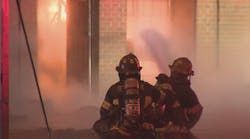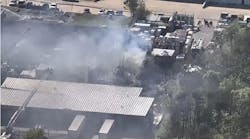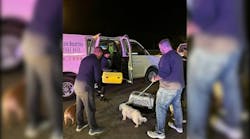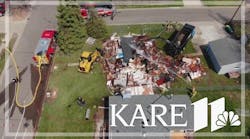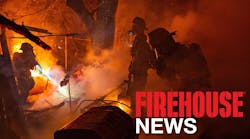Jan. 15--A few years ago, Kendrick Johnson had a conversation with his girlfriend: If he wanted to keep his job with the Memphis Fire Department, he had to enter an intense training program to become a paramedic.
He recalls telling her that if they were going to stay together, she would have to understand. "I put my life on hold for about 16 months," the 31-year-old said.
Johnson graduated from the program in 2011. Now, he can find himself treating a headache or a cardiac arrest. "You're in these people's houses. You're in their elements, so you have to adapt and deal with the situation put in front of you."
Nationally, it's a job that few African-Americans currently hold. Only 7.7 percent of paramedics in the country are black, according to the National Registry of Emergency Medical Technicians. But in Memphis, the proportion has risen from 8 percent to 25 percent in recent years, due in part to an enhanced system of in-house training.
Segregation kept black people out of the Memphis Fire Department for decades. The department first hired 12 black firefighters in 1955, but kept them separate from their white counterparts. A 1980 court consent decree forced the department to promote and adequately compensate black workers.
"There wasn't a legacy in the fire service. You didn't know people who looked like you in the fire service," said fire director Alvin Benson, who is African-American and joined in 1987 when a friend suggested it.
During a time when the fire department was making a transition away from simply putting out blazes and toward emergency medicine, Benson said a concerted effort was made to bring more African-Americans into the role of paramedic.
In 2007, the department instituted a requirement that all firefighters must undergo training as paramedics within three-and-a-half years of their date of hire, and they ran intensive training programs in-house.
Since many new firefighter recruits were black, the proportion of paramedics rose naturally.
"We've really achieved something that's the envy of the nation," Benson said.
He and other leaders of the fire department say the accomplishment also helps the department serve a majority black city.
They say cultural misunderstandings can occur in tense situations. Deputy Chief Gary Ludwig, who is white, recalls responding to a medical call for a child at a day care center. The black minister who owned the center was trying to help, but getting in the way. Ludwig recalls that another white paramedic wanted the minister arrested.
"You don't do that," Ludwig recalls saying. "This man is a role model to a lot of these kids."
Today, the fire department employs 272 white paramedics, who also work as firefighters. The department employs 94 black firefighter-paramedics, five Hispanic firefighter-paramedics, and one Asian firefighter-paramedic. Recruits earn $48,100 and those with three or more years' experience earn $56,400.
During the in-house training, paramedics must master topics such as anatomy and learn to administer powerful drugs.
The job can be emotionally difficult, too. Johnson recently prayed as he helped a man who was trapped in a car. The man died, and Johnson participated in a group talk about the incident that the department calls a critical stress debriefing.
Johnson also recalls happy moments, such as the recent case when he used his basic Spanish to communicate with a husband and wife from Haiti.
The wife had fainted, and when she recovered, she and her husband thanked him warmly. "That's what I come to work for," Johnson said.
And the girlfriend he asked to stand by him during his intense study? They're married now.
Copyright 2014 - The Commercial Appeal, Memphis, Tenn.

